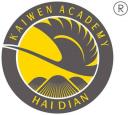

KS1/KS2 Class Teacher
- Elementary
- Licensed Teacher
- Bachelor
- 2 years of teaching experience
- Teaching Credential/License
- United States (USA), United Kingdom (UK), Canada, South Africa, Ireland, Australia, New Zealand
Key Responsabilities
- Professional Attributes
- To have high expectations of all pupils based on relevant data.
- Have high expectations of children and a commitment to ensuring that they can achieve their full educational potential and to establishing fair, respectful, trusting, supportive and constructive relationships with them.
- Demonstrate the values, attributes and behaviour you expect from children.
- Be aware of the professional duties of teachers and the statutory framework within which they work.
- Be aware of the policies and practices of the school and share collective responsibility for their implementation.
- Communicate effectively with children, young people, colleagues, parents and careers.
- Recognise and respect that the colleagues, parents and careers can make to the development and wellbeing of children and young people and to raising their levels of attainment.
- Have a commitment to collaboration and cooperative working with colleagues.
- Reflect on and improve their practice; take responsibility for identifying and meeting their professional development needs.
- Have a creative and constructively critical approach towards innovation; being prepared to adapt their practice where benefits and improvements are identified.
- Act upon advice and feedback and be open to coaching and mentoring.
- Professional Knowledge and Understanding
- Have a range of teaching, learning and behaviour management strategies and know how to use and adapt them, including how to personalise learning and provide opportunities for all learners to achieve their potential.
- Know the assessment requirements and arrangements for the subjects/curriculum areas they are trained to teach.
- Be informed of a range of approaches to assessment, including the importance of formative assessment.
- To follow assessment guidance set out in the whole school assessment policy.
- Know how to use local and national statistical information to evaluate the effectiveness of their teaching, to monitor the progress of those they teach and to raise levels of attainment.
- Have a secure knowledge and understanding of curriculum areas to enable you to teach effectively across the age and ability range for which you are trained to teach.
- Know and understand the relevant statutory and non-statutory curricula frameworks, for your curriculum areas (all taught areas), and other relevant initiatives across the age and ability range for which you are trained to teach.
- Know how to use skills in literacy, numeracy and ICT to support your teaching and wider professional activities e.g. planning and assessment.
- Understand how children develop and that the progress and well-being of learners are affected by a range of developmental, social, religious, ethnic, cultural and linguistic influences.
- Know how to make effective personalised provision for the children you teach including those for who English is an additional language.
- Know and understand the roles of colleagues with specific responsibilities, including those with responsibilities for learners with SEN and disabilities and other individual learning needs.
- Be aware of current legal requirements and policy concerning the well being of children.
- Know how to identify and support children whose progress, development or well-being is affected by changes or difficulties in their personal circumstances, and when to refer them to colleagues for specialist support.
Professional Skills
- Assess the learning of those you teach and set challenging learning objectives.
- Plan and teach lessons and sequences of lessons that are well organised, demonstrating secure subject knowledge relevant to curricula across the age and ability range for which you are trained.
- Use a range of teaching strategies and resources including e-learning.
- Provide opportunities for learners to develop their literacy, numeracy and ICT skills
- Provide homework to sustain learner’s progress and consolidate their learning.
- Make effective use of a range of assessment, monitoring and recording strategies.
- Provide daily, accurate and constructive feed back on learner’s attainment, progress and areas for development.
- Support and guide learners to reflect on their learning, identify progress they have made and identify their emerging learning needs.
- Establish a purposeful and safe learning environment conductive to learning and identify opportunities for learners to learn in and out of school contexts.
- Establish a clear framework for classroom discipline to manage learners’ behaviour constructively and promote their self-control and independence.
- Work as a team member and identify opportunities for working with colleagues, sharing the development of effective practice with them.
- Ensure colleagues (e.g. Teaching Assistants) working with you, are appropriately involved in supporting learning and understand the roles they are expected to fulfil.
- Advising and co-operating with staff on the preparation and delivery of courses of study, teaching materials and programmes, methods of teaching and assessments and pastoral arrangements.
- Participating in arrangements for further training and professional development, including undertaking personal training and professional development identified through performance management.
- Safeguarding children’s H&S in school and on authorized school activities elsewhere.
Basic Qualification
- Minimum of a Bachelor’s degree, teaching certification.
- Major in English related majors
Experience
- A minimum of 2 years working experience as primary class teacher.
Expertise
- Primary teaching in KS1 or KS2.
Preferred Aptitudes
- Excellent communication skills
- Open, proactive, patient and caring
- Proficiency in Microsoft Office
- Adaptable and flexible
- Committed to continued professional development
Wellington College China schools are committed to safeguarding and promoting the welfare of children. Assessment and testing of applicants’ suitability to work with children is an integral part of the selection process.
Wellington College China is a partner of Wellington College in England. It has five schools and two nurseries in China, all in exciting, international cities. Our schools provide an outstanding education for 2,150 local and international children aged between 2 and 18 years old.
Success in public examinations is important and we celebrate it. However, at Wellington College, excellent exam results and great university destinations, in the UK and worldwide, are only part of the picture. We want our pupils to be the very best people that they can be: to be kind, to have integrity in their actions, to take responsibility when necessary, to have respect for their environment, for others and themselves, and finally to show courage when needed. The Wellington values frame the way we think about what it is be a Wellingtonian, including the ways we work and what we hope to become.
Our Huili Schools combine Wellington’s holistic, British approach to educating the whole child, with the enduring strengths of the Chinese curriculum and focus on learning. We talk about giving our pupils the best of both worlds. Half our lessons are in English and half in Chinese. Half our teachers are English-speakers and half are Chinese. It is our desire to imbue every pupil with our five core values: courage, integrity, respect, kindness and responsibility. We encourage and expect our Chinese pupils to develop the Wellington identity: to be inspired, intellectual, independent, individual and inclusive.
Similar Jobs



Primary Homeroom Teacher

PE Teacher
